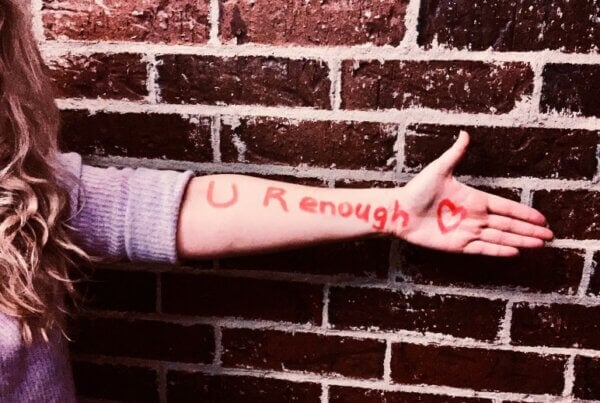Why Does Hollywood’s Treatment of Addiction and Recovery Need a Script Rewrite?
Hollywood has long been a dream factory and a high-stakes battlefield where talent is incessantly pressured to perform and excel. Behind the glimmering façade of red carpets and blockbuster premieres, many artists struggle with personal demons, including addiction. The tragic losses of celebrities like Amy Winehouse, Philip Seymour Hoffman, and Whitney Houston have cracked open the conversation about the necessity for comprehensive understanding and support for addiction recovery in this high-profile industry.
Act One: Recognizing the Problem
Matthew Perry’s recent death has reignited urgent discussions about Hollywood’s voyeuristic relationship with addiction. The entertainment industry was privy to Perry’s battles early on; his characteristic wit on-screen was often overshadowed by headlines detailing his struggles off-screen. This public display of personal suffering highlights an endemic issue: Hollywood’s reactive rather than proactive stance toward such crises.
Act Two: The Cost of Turning a Blind Eye
The economics of show business rarely accommodate interruption. Studios balk at shelving projects for the significant time required for meaningful recovery. Talent is viewed through a prism of cost-versus-benefit analysis – often reduced to mere assets with dollar signs attached. This pervasive mindset marginalizes those in need by prioritizing financial return over human well-being.
Aside from profit-focused agendas, there’s a prevailing expectation that rehabilitation should be quick – a detox or less than a 30-day stint is touted as a panacea. Counterintuitively, this rush can mean higher eventual costs regarding relapses and tarnished reputations when rushed recoveries fall short.
Amy Winehouse’s struggles were almost seen as part of her persona, more entertainment than an alarm bell until it was too late. For Philip Seymour Hoffman, sporadic pauses for health took a backseat to his intense work schedule until tragedy struck; he was found dead from combined drug intoxication, including heroin, despite having completed detox programs.
Whitney Houston’s story follows suit – an illustrious career marred by substance abuse issues that were inadequately addressed due to constant tour demands and studio expectations, which nearly monopolized her time and energy up until her untimely death.
These cases underline how the industry looks away and its pernicious culture that sees celebrities as resilient or disposable commodities rather than individuals in need.
Act Three: Underestimating the Process
Recovery from addiction is complex; it requires more time than most studios are willing to grant. Evidence-based research underscores that sustainable recovery is often measured in months or years rather than days or weeks. Addiction is defined by chronic relapsing—a long-term reboot for brain function—not something easily reset within fleeting blackout periods between projects.
Unlike more visible injuries where casts can be seen or surgeries confirmed, mental health conditions like addiction lack tangible markers – rendering them more accessible to trivialize or misunderstand within deadline-driven environments where out-of-sight can quickly become out-of-mind.
By glossing over this slow process and expecting fast turnarounds like those prescribed by precarious detox stints or insufficient 30-day rehab programs, Hollywood protocols help neither their talent nor their bottom line.
The Encore: The Industry’s Role in Healing
Ultimately, studios must realize that while they may temporarily lose an asset when they allow time for recovery, they stand to gain far more through long-term stability – both humanely and commercially – when they foster environments conducive to sustained sobriety. Management must implement robust support systems emphasizing complete wellness versus mere optics-readiness.
Legislation focused on safeguarding workers’ health can set new standards within these creative industries. Mandates requiring proof of wellness before return to work would help protect investments and validate healing journeys. Hollywood must lead by example here – enacting policies that prioritize life over schedules while embracing human frailty as part of artistry.
Moreover, the production nature of entertainment routinely disrupts sleep patterns—a key element conducive to recovery—and fractures vital social support systems that nurture healing processes outside work confines. These scenes necessitate thoughtful rewriting for positive outcomes off-screen as much as on it.
For Hollywood professionals who are besieged by public scrutiny on top of their battles with substance use disorders (SUD), offering long-term sober periods away from spotlights could mean the difference between life under klieg lights versus shortened final acts shrouded in morbidity statistics.
Fade Out: A Lesson Unlearned
Hollywood needs education – truly digesting what it entails to comprehend mechanisms driving SUDs and adopting evidence-based best practices supporting long-haul recoveries over myopic quick fixes indicating returns-to-normalcy achieved superficially.
Until their paradigm shifts from ‘understudy readiness’ towards ‘whole person sustainability,’ Hollywood will endure preventable losses—their closing curtains forever memorializing contributions while inscribing epilogues laden with contemplations about what might’ve been if life had been allowed precedence over scripts.
In remembrance of talents lost—luminaries like Matthew Perry—and countless others obscured in shadow castings beyond public viewfinder reach—may each serve as sentinel reminders catalyzing overdue cultural reforms necessary within Tinseltown landscapes yet reluctant admitting ‘we don’t know how to do this.’ Only then can authentic calls for ‘cut’ resonate sincerity preceding sequel stories hinged upon healthier ever afters reflective collective enlightenment overcoming erstwhile overlooked afflictions dimming marquee brilliance too soon.
- If you or someone you know needs help with substance use disorders, let us at Pacific Beach Recovery provide answers to questions you may have about recovery and sober living.
Let us advocate ardently so no encore performances enshrouded despair repeat behind silver screens yearning revivals instead showcasing actual triumphant comebacks reflective rehabilitative regimens resonating respect-worthy resilience deservedly emulated industry-wide beyond box office barriers boding brighter dawns beholding stars aligned favorably fulgent anew illumining not just stages globally but souls universally unbowed better brokenness borne bravely backstage before emerging empowered encores exemplary echoed everywhere eminently enduring.
By Nikki G.



